Istanbul, 27 Rabi’ul Akhir 1436/17 February 2015 (MINA)– The Turkish government has returned more than 1,000 proprieties which once belonged to nonMuslim minorities in what it describes “the biggest restitution in (Turkish) history.”
Prime Minister Ahmet Davutoglu met with around 40 non-Muslim religious minority leaders in Ankara on Wednesday. During the meeting Davutoglu said that times whenminorities experienced discrimination were to be left behind.
“I am sure you have seen that a new approach has been built in Turkey in the last 12 years,” he added, Anadolu Agency quoted by Mi’raj Islamic News Agency (MINA) as reporting.
The number of Turkey’s non-Muslim minorities – such as Christians and Jews – fell after republican-era “Turkification” policies.
Also Read: Auckland Protesters Rally for Palestine, Urge Nationwide Boycott of Israeli Products
The 1923 population exchange between Turkey and Greece, the 1942 “wealth tax” which hit non-Muslim communities and the 1955 attacks – also known as the ‘Events of 6-7 September’ – saw many minority citizens leave the country.
In 2008, under new legislation passed by the ruling AK Party, reforms allowed minority groups to buy and renovate their properties, such as religious buildings.
When then-prime minister Recep Tayyip Erdogan announced a “democratization package” back in 2013, the new regulations paved the way for one Syriac Orthodox monastery in the southeastern province of Mardin, to have 244,000 square meters of land returned.
Turkey’s prime ministry described the return to Mor Gabriel Monastery as “the biggest land to be returned.”
Also Read: Protesters in London Denounce Israeli Violations of Gaza Ceasefire
In June 2014, President Erdogan said the AK Party government had returned confiscated assets worth $2 billion to Turkey’s ethnic and religious minorities.
After Wednesday’s meeting Turkish-Armenian journalist Markar Esayan spoke to media, saying: “There is an unprecedented mentality change in Turkey towards non-Muslims.” Esayan said that Davutoglu’s messages were inclusive rather than marginalizing as previous governments.
He added that the change in the last decade was of critical importance: “There is a considerable overlap inminorities’ quality of life, corporate problems, individual rights and freedoms.”
Solving problems for Turkey’s non-Muslim citizens is one of the most important parts of the country’s democratization process and for this reason Erdogan and Davutoglu held 12 meetings with community leaders between 2009 and 2014, said the prime ministry.
Also Read: Russia Defends Indonesia, Calls IOC “Hypocritical” Over Israel Visa Dispute
There are 165 community foundations in Turkey: 76 Greek community; 53 Armenian; 19 Jewish; 10 Syriac; three Chaldean; two Bulgarian; and one Georgian and Maronite each.
Earlier this year Davutoglu announced that a new church for Turkey’s around 20,000 Assyrian Christian community will be constructed – the first to be erected in Turkey for decades – in Istanbul.
At the same meeting Davutoglu said: “The principle of equal citizenship, which has been concretized with the return of foundation assets recently, will be our basic motto from now on.”
Speaking on Wednesday, Davutoglu said that there had been dark chapters in Turkish history, adding: “We should
Also Read: IOC Suspends Indonesia’s Bid to Host Olympic Events After Visa Refusal for Israeli Athletes
not refrain from facing this history, these experiences.”
“It is not possible to forget September 6-7 events’ sorrow,” he said referring to attacks which mainly targeted Istanbul’s Greek minority in 1955.
Davutoglu said that after the suffering in the 19th century and the first quarter of the 20th century, the world had been impoverished.
He said that Balkan cities lost their Muslim and Turkish inhabitants while Anatolian cities lost their Greeks, Armenians and Jews.
Also Read: ICJ Rules Israel Must Facilitate Humanitarian Aid to Gaza Under Geneva Convention
“It is time to re-coalescence,” Davutoglu said.
According to the prime ministry, there is now an ongoing reconstruction process. Eleven Catholic and Orthodox churches as well as synagogues have already been reconstructed across Turkey.
One Armenian Church on the northwestern Aegean coast and another Orthodox church in Istanbul as well as one synagogue in the eastern province of Edirne are under construction.
There are several religious buildings awaiting construction: one synagogue in south-central province of Kilis as well as one Orthodox church and two Armenian churches in the southern province of Hatay.
Also Read: Israeli Fans Riot in Tel Aviv After UK Ban
Located in Turkey’s Black Sea province of Trabzon, the historic Sumela Monastery and, in Van, the Armenian Cathedral of The Holy Cross were opened for religious ceremonies by Turkey after the new legislation.
In 2010 prime ministry published a communiqué “for the protection of people belonging to different faith groups.”
Turkey’s ministry of education also prepared Armenian textbooks and distributed them to Armenian schools for free during the 2010-2011 school year.
The country’s Press Advertisement Agency has been also supporting six minority newspapers since 2011, said the prime ministry.
Also Read: UK Bans Israel Supporters from Maccabi Tel Aviv Match at Aston Villa
The Turkish premier said that a common culture should be formed in which people share all the pain and joy instead of remembering “painful sorrows.”
He also said: “It is in our hands to build a beautiful future all together.” (T/P010/R03)
Mi’raj Islamic News Agency (MINA)
Also Read: IOC Urges Indonesia to Grant Visas for Israeli Athletes
Also Read: Greta Thunberg Describes Five Days of Abuse in Israeli Custody





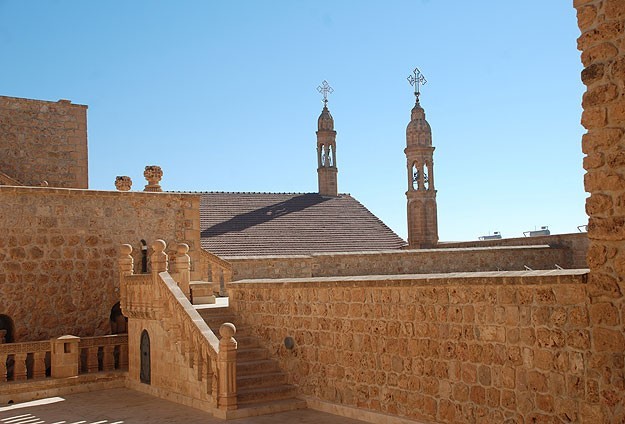


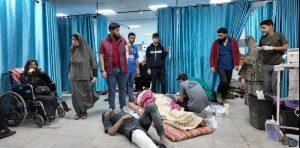
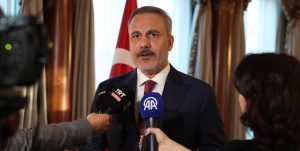
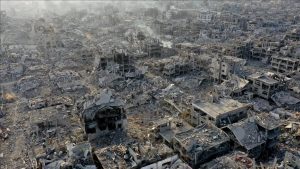
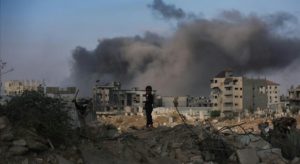


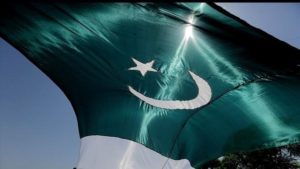
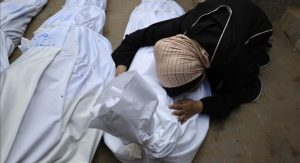
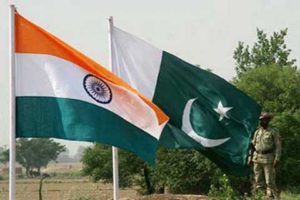
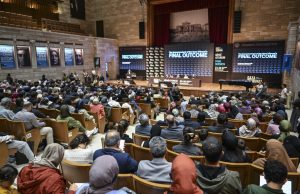
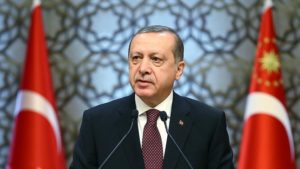
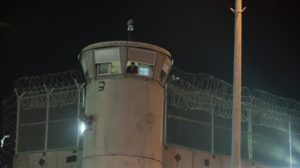
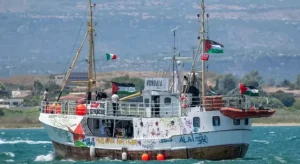
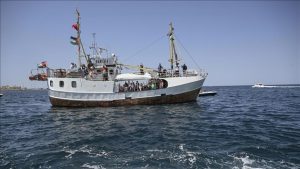






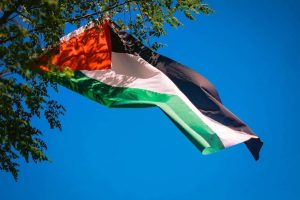
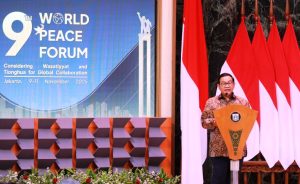





 Mina Indonesia
Mina Indonesia Mina Arabic
Mina Arabic